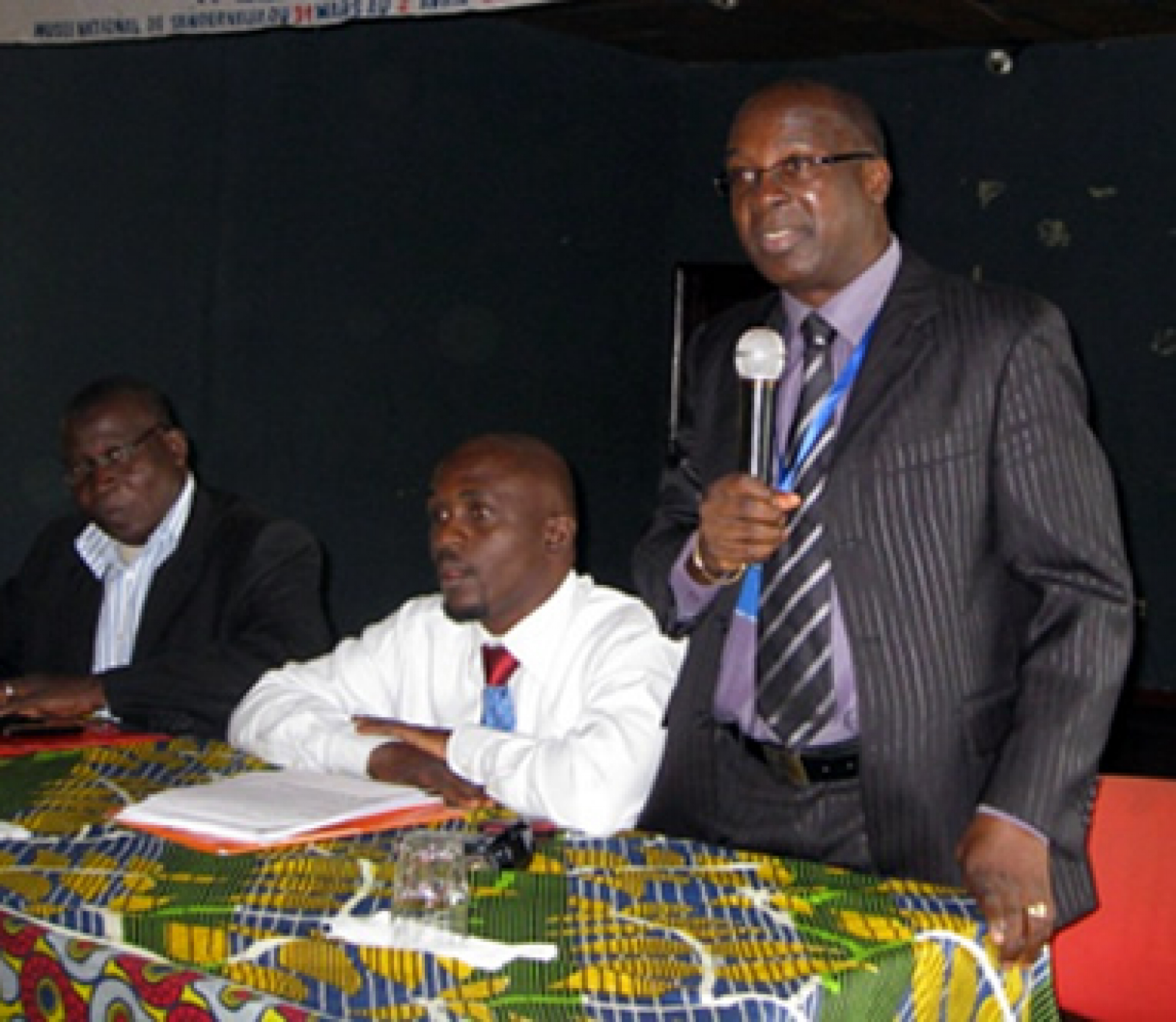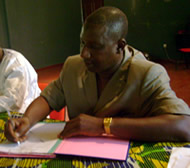
SHARE
As Guinea prepares for legislative elections at the end of this year — only the second competitive polls ever held in the country — political parties are working hard to expand voter registration, select candidates more democratically, and improve outreach to rural party members and constituents. These principles were among the recommendations put forward by more than 40 Guinean political parties following a month of consultations about their experiences from the country’s first campaign last year.
After more than 50 years of authoritarian rule, Guinea held its first elections in the second half of 2010. The polls marked the first time political parties had ever been able to campaign openly and in a competitive environment, but the campaigning period was marred by some violence. Further adding to the political tension, administrative issues caused runoff elections to be pushed back four months later than anticipated according to constitutional law.
Parties Agree to Expand Code of Conduct

Also at the March 31 meeting, parties agreed to expand their code of conduct and the system by which they monitor adherence to the code. In 2008, 41 political parties signed the country’s first political party code of conduct, establishing standards for political party behavior, such as renouncing violence, using legal means to address grievances, and accepting official election results. Now, 83 of the country’s 143 political parties have signed the code.
During the 2010 election cycle, NDI and its partners conducted civic awareness campaigns to promote the code, sending caravans across the country to broadcast the message, and partnering with youth organizations and village leadership to reinforce its standards. During a debriefing after the campaign, all parties agreed that the code and the civic awareness campaigns played an important role in easing tensions and helping political parties peacefully accept the results of the election.
One provision of the code establishes a code of conduct monitoring committee (CCMC), which is partly financed by the parties and ensures that the rules are consistently and fairly applied. Based on feedback from the parties, NDI plans to expand the CCMC from its current presence in Guinea’s 33 prefectures to the local, sub-prefectural level, so that party branch offices can monitor the code’s enforcement in areas most prone to violence in time for the legislative election campaign, which is slated to begin late this year.
To strengthen the code, parties agreed to apply more effective sanctions, ranging from public notice of non-adherence to the pursuit of legal action, depending on a party’s specific violation. They also agreed to increase awareness of the code among ordinary Guineans through advocacy campaigns and translating the document into local languages.
Since the end of that campaign, NDI has been working with political parties to compile their lessons learned throughout the historic presidential election process of 2010. In the capital of Conakry and across Guinea’s seven administrative capitals, the Institute discussed with party leadership and regional representatives what they hope to do differently in the upcoming campaign, searching for principles that all parties could agree to that would create more efficiently-run elections and more peaceful polls in Guinea’s upcoming legislative elections.
For example, parties reported that communication between the capital and the provinces was a challenge. Campaign materials, information about a party’s message or platform, or professional trainers and organizers didn’t always make it into more rural areas of the country. Often, information about the electoral legal framework, including constitutional provisions and campaign finance laws, was not sufficiently communicated to the party wings outside the capital.
Party pollwatching also suffered from this disconnect. In some instances, parties had a hard time finding trainers and funding to field poll watchers in rural areas, resulting in some polling stations not being monitored, and some parties not having a presence at polling sites in certain parts of the country.
The NDI-led campaign evaluation process culminated March 31- April 2, when 40 parties met to discuss their findings and recommendations. For the legislative elections, parties agreed to:
- Develop better voter registration and get out the vote efforts;
- Select candidates in a more democratic fashion and respect quotas for women on party candidate lists. Although legally women are supposed to make up 30 percent of a party’s candidate list, this rarely happens in practice and parties don’t suffer any repercussions for not following the quota law;
- Improve communication between party headquarters in the capital and branches in the rest of the country; and
- Raise enough money to ensure that information is disseminated and training occurs in the more rural areas of the country.
These steps are intended to make future elections less violent, more inclusive, more efficient and ultimately more democratic.
Related:
- Read media coverage of the political party event (French)»
- Guinea: Political parties sign code of conduct, look to stem recent conflict»
- In Guinea, peaceful transition to civilian rule anticipated after presidential election»
- Code of conduct takes Macedonia toward democracy and Europe»
Pictured above: Koleah Keita (l), workshop recorder; Hady Leno, treasurer of the Code of Conduct Monitoring Committee; and Dr. Raphael Ouattara (r), NDI resident senior country director in Guinea; at the workshop in Conakry.
Published April 26, 2011


